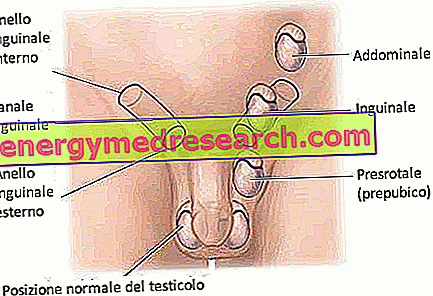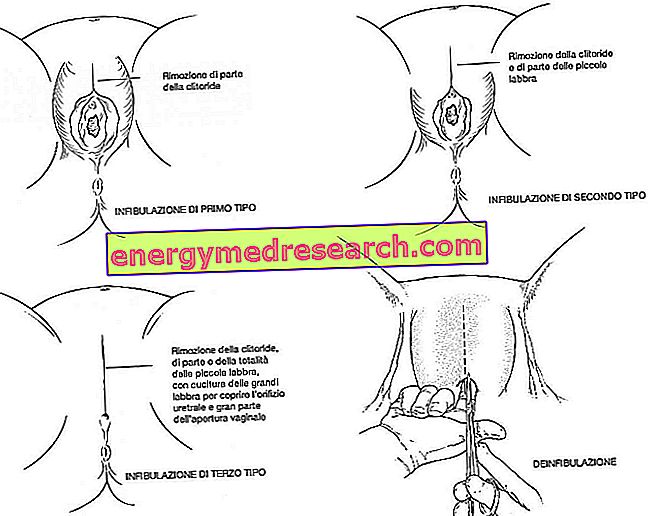Definition
The fasciculations are spontaneous and rapid contractions of groups of muscle fibers, visible below the skin.
The subject affected by fasciculations feels sudden flashes, but does not perform an articular movement.
Muscular collation results from an abnormal hyper-excitability of the muscles, which makes their spontaneous activation unstable and easy. At the base of this "discharge" may be electrolyte imbalances, neurotransmitter dysfunctions (such as acetylcholine) and damage or progressive degeneration of motor units.
In most cases, fasciculations are benign, occasional and not associated with neurological or muscular pathologies. These sudden flashes can occur due to anxiety, sleep deprivation, excessive physical effort, hypoglycemia, potassium deficiency and hypomagnesemia. At other times, they reflect an undesirable effect of drugs (eg salbutamol for the treatment of asthma and suspension of benzodiazepines) and stimulants (eg caffeine, amphetamines and drug or alcohol withdrawal symptoms).
Benign fasciculations involve few muscle fibers and are not accompanied by muscle atrophy and asthenia. Furthermore, the electromyographic examination shows no abnormalities.
Although they can occur in normal musculature, fasciculations can also take on the significance of progression of a neurological and / or muscular disease. These sudden flashes are among the symptoms of motor neuron diseases, such as amyotrophic lateral sclerosis (ALS). Other possible causes include myasthenia gravis, muscular dystrophy, poliomyelitis and syringomyelia. Muscle collation is also found in cases of organophosphate and carbamate intoxication (pesticides that inhibit the activity of cholinesterase), fibromyalgia, chronic fatigue syndrome, rabies, arthrosis, spinal cord tumors, lesions and compression of the anterior roots ( as herniated discs and spinal traumas) and multiple sclerosis.
Possible Causes * of muscle collation
- Anxiety
- Arthrosis
- Cervical osteoarthritis
- Spinal Muscular Atrophy
- Slipped disc
- West Nile virus infection
- Myasthenia gravis
- myelopathy
- Polio
- Anger
- radiculopathy
- Amyotrophic lateral sclerosis
- Multiple sclerosis
- Fibromyalgia syndrome
- Syringomyelia



